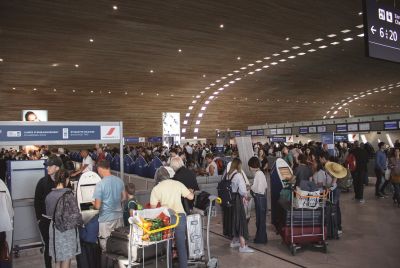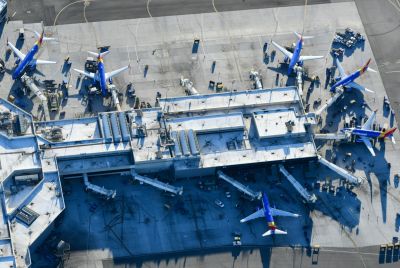How to Find Accommodation Quickly When Plans Change Suddenly in Australia
Sudden changes in travel plans don't have to ruin your trip—here's how to secure safe, last-minute accommodation in Australia using digital tools and smart strategies.

Travel plans can change without warning, especially during long-distance journeys or unexpected events. For first-time visitors to Australia, finding last-minute accommodation may seem overwhelming. A delayed flight, weather disruption, or a booking error can leave travelers searching for alternatives in unfamiliar areas.
While some areas may be fully booked during festivals or school holidays, others offer flexible stay options throughout the year. Understanding how to search effectively and stay connected can help avoid unnecessary stress. Besides, it ensures a smooth continuation of the journey.
Use Trusted Accommodation Platforms
Several booking platforms specialise in short-notice accommodations across Australia. They offer filters for price, location, availability, and guest ratings. Travelers can compare different types of lodging, including hostels, motels, serviced apartments, and hotels.
It is advisable to look for properties with flexible check-in times and instant booking confirmations. Using mobile apps becomes easier with an Australia travel esim, which offers stable internet for quick bookings. An internet connection also ensures access to location-based suggestions and immediate updates on reservations.
Explore Last-Minute Deals and Offers
Many accommodation platforms offer discounts for same-day or next-day bookings. These deals are beneficial when original plans fall through. Some hotels and motels post last-minute availability directly on their websites or through aggregator platforms.
Budget-conscious travelers can filter results to see reduced rates without compromising safety or location. Accommodation providers often release unsold inventory at lower prices in the evening. Booking after 5:00 PM may result in better deals, particularly in less busy regions.
Visit Local Tourism Offices or Info Centers
In smaller towns and regional areas, online listings may not reflect all available accommodation options. Local tourism offices often maintain up-to-date information on guesthouses, motels, and short-term rentals. Staff at these centers can assist with bookings and may have contacts with local hosts who are not listed online.
Travelers arriving without accommodation late in the day can benefit from visiting a visitor center for faster solutions. Locations such as Byron Bay, Alice Springs, or Tasmania's smaller towns often rely on walk-in inquiries for last-minute bookings. These centers provide updated listings on available rooms, local transport, and essential services.
Use Navigation Apps to Search Nearby Lodging
Navigation and mapping apps can be used to locate accommodation in the immediate area. By entering keywords like 'hotel near me' or 'backpackers accommodation,' users can access nearby listings, directions, and contact details. Many of these apps also link directly to the provider's website or booking platform.
Having mobile access enables travelers to contact the front desk or host directly for inquiries about availability. This is particularly useful in remote locations with fewer online listings or in cases where websites may not reflect real-time availability. An Australia travel esim ensures reliable connectivity in such moments, allowing travelers to make timely calls or send messages without relying on public Wi-Fi.
Consider Alternative Accommodation Types
If hotels are fully booked, consider staying in motels, serviced apartments, holiday parks, or hostels as alternatives. Motels, often located along highways and in regional towns, offer clean, basic lodging with short-notice availability. Holiday parks usually feature cabins, tent sites, or budget lodges, making them suitable for groups or families. Hostels are another flexible option, especially for solo travelers.
Many hostels in cities like Brisbane or Adelaide offer private rooms in addition to dormitories. These alternatives often provide greater flexibility in terms of check-in times and booking terms. Travelers can benefit from using mobile apps to quickly and efficiently secure these options. Booking platforms often display real-time availability and guest ratings to support informed decisions.
Prepare Documents and Payment Details in Advance
Quick bookings require fast responses. Keeping digital copies of identification, travel insurance, and payment information helps speed up the check-in process. Most online platforms require a valid credit or debit card for immediate confirmation. Travelers should ensure they have access to mobile banking apps or digital wallets for secure transactions.
Using trusted accommodation platforms reduces the risk of booking errors or scams. Checking recent guest reviews can provide valuable insights into the property's conditions and service quality. Some apps also allow users to filter results by late check-in availability or 24-hour reception. Saving booking confirmations offline ensures access even when there is no internet connection during arrival or transit delays.
Conclusion
Finding accommodation quickly in Australia becomes easier with the right tools and preparation. Travelers can rely on digital platforms and flexible lodging types to secure a safe stay when plans change suddenly. Reliable mobile access through an Australia travel esim can make this process faster and more efficient. Being connected at all times allows travelers to respond promptly to new opportunities and avoid last-minute stress.
© Copyright IBTimes 2025. All rights reserved.





















